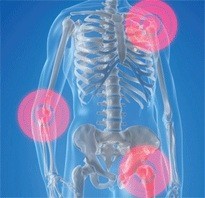Cost remains a major constraint in the use of originator biologicals in rheumatology in developing countries, paving the way for ever increasing usage of biosimilars. However, apart from the cost, their efficacy and safety are of tremendous interest to clinicians in both developing and developed worlds.
Biosimilar rituximab in biological naïve rheumatoid arthritis patients
Biosimilars/Research
|
Posted 24/06/2016
 0
Post your comment
0
Post your comment

Researchers from the Department of Rheumatology at the National Hospital in Calicut, Kerala, India prospectively studied 21 biological naïve patients (mean age 56 ± 4.2 years; 65% females, disease duration range 1.5‒7 years) with seropositive rheumatoid arthritis. These patients had active disease (disease activity score, DAS28 ESR > 5.1) for more than 3 months despite standard combination, conventional disease-modifying anti-rheumatic drug (DMARD) therapy (including oral or subcutaneous methotrexate at 15‒25 mg/week and low dose, i.e. < 7.5 mg/day prednisolone equivalent, glucocorticoids). All patients were treated with biosimilar rituximab (2 doses of 1,000 mg, 2 weeks apart) [1].
In the minimum 3-year follow-up in each of these patients several interesting observations were made:
1. At 3 months, significant improvement compared to baseline was noted in both DAS28 ESR (6.08 ± 0.36 vs 2.54 ± 0.8, p <0.0001) and health assessment questionnaire (HAQ; 1.98 ± 0.54 vs 1.14 ± 0.31, p < 0.0001) in these patients.
2. 19 patients were responders and in only two patients was there no improvement.
3. After 1 year, 12 patients were in remission and 7 patients had low disease activity (LDA; DAS28 ESR ≤ 3.2 to > 2.6).
4. Among those who maintained remission beyond 1 year, de-escalation of existing therapy (mainly gradual reduction and eventual cessation of hydroxylchloroquine in 7/12 and of glucocorticoids in 9/12 patients) was possible.
5. Three patients required re-treatment with biosimilar rituximab, one after 1.5 years and two after 2 years.
6. At the end of 3 years, sustained remission was noted in 10 patients and LDA in 9 patients.
7. No worsening of pre-existing interstitial lung disease was noted in the four affected individuals.
8. Infusion-related reactions were noted in two patients during the first infusion. No serious adverse events (SAEs) were observed in the prolonged follow-up period.
In conclusion in this small cohort of biological naïve patients with active rheumatoid arthritis, use of biosimilar rituximab resulted in prolonged benefit in the majority of patients and was well tolerated.
Conflict of interest
The authors of the research paper [1] declared that Vinod Ravindran had received consultation honorarium and grants to attend meetings from Dr Reddy’s Laboratories (manufacturer of biosimilar rituximab – Reditux), Pfizer/Wyeth, Intas, Zydus, Sanofi and Cipla. K K Roshique has no disclosures.
Abstracted by Dr Vinod Ravindran, Consultant Rheumatologist, Centre for Rheumatology, Calicut, Kerala, India.
Editor’s comment
Readers interested to learn more about biosimilars are invited to visit www.gabi-journal.net to view the following manuscript published in GaBI Journal:
Top developments in biosimilars during 2015
Readers interested in contributing a research or perspective paper to GaBI Journal – an independent, peer reviewed academic journal platform – please send us your submission here.
Related articles
Celltrion submits rituximab biosimilar application to EMA
Reference
1. Roshique KK, Ravindran V. Efficacy and safety of a biosimilar rituximab in biologic naïve patients with active rheumatoid arthritis. Clin Rheumatol. 2015;34(7):1289-92.
Permission granted to reproduce for personal and non-commercial use only. All other reproduction, copy or reprinting of all or part of any ‘Content’ found on this website is strictly prohibited without the prior consent of the publisher. Contact the publisher to obtain permission before redistributing.
Copyright – Unless otherwise stated all contents of this website are © 2016 Pro Pharma Communications International. All Rights Reserved.
News
FDA approves Poherdy (first interchangeable pertuzumab) and Armlupeg (pegfilgrastim) biosimilars
EMA recommends approval for insulin glargine biosimilar Ondibta and denosumab biosimilar Osqay
General
Samsung Bioepis wins Pyzchiva case; Regeneron patent rulings threaten foreign biosimilars
Chinese biosimilars go global: growth, partnerships, and challenges
What is the future for the US biosimilar interchangeability designation

Biosimilars/Research Posted 05/06/2025
Biosimilar clinical efficacy studies: are they still necessary?

Biosimilars/Research Posted 27/05/2025
The best selling biotechnology drugs of 2008: the next biosimilars targets








Post your comment